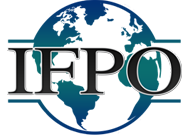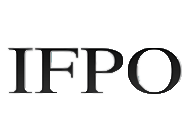by Mark D Hardison, CPO
December 1, 2000
Reprint Protection Officer News - Fall 2001
What are the "Tools of the Trade", for security officers? While much will depend on the site, and the specific nature of the duties of the officers in question, some things will be the same for almost any job.
For most of us, the critical tools start with an alert mind and a keen eye. This does not mean perfect eyesight! But, it does mean that we need to be thinking and seeing all the time. It is not enough to just look; we need to see what we are looking at. It is not enough to notice an event; we should ask why the event occurs. Much like the old reporter's adage, and for the same reasons; we should be asking: Who-What-When-Where-Why-&-How. Of course, our reports must be limited to the facts.
While a security officer is involved in preventing crime or loss, their jobs will also involve the task of being an impartial observer of events. If called on to testify in court, we must give accurate and complete testimony of the facts that we know. But, court cases may be weeks, months, and even years after the events. How do we truthfully and completely testify about events, so long after the fact? Here is where the next set of tools comes into play.
When I was a young soldier in Military Police School, one of our instructors put us all straight on our most important tools. Some of us were talking about the rifle, others about the pistol, and others about various common police tools; handcuffs, mace, radios, batons. This wise old MP put us all on the right track. He said; "You will have jobs where there will be no arms, no radios, not even keys. But every day, and at every post, you had better have a way to tell the time, something to write with, and something to write on." Over the course of time, I have forgotten his name. But, his advice was true. I have had several jobs where there were none of the common police tools in use. But every time; the advice to have a watch, pen, and paper has paid off. When called on to testify, or even give a report to a relief or superior, having written notes has made a difference. It has helped me to organize my thoughts, impose order in my writing, and to calm and assure me when verbally reporting or testifying.
Of course if there are other tools that you use, you must know to use them properly. If they are the common police tools (weapons, handcuffs, chemicals, batons); your employer, or the local jurisdiction, will have training standards and instructions for you to follow. It is in your best interest to follow these procedures carefully!
Other tools, like radios, personal computers, faxes and telephones, may be familiar to most of us, but can still hold some surprises for the unwary. Not too long ago, I had a security officer at a remote facility tell me that he had a copy of a form that I needed to see. When I asked him to fax a copy to me, he refused. His reason? This form was the last one he had, and he needed to keep it there. (I told him to send it to me, and I would have it sent right back to him. He not only did so, he called me up afterwards to thank me for returning the original so promptly.) Someone in this man's training group had failed him, badly. It pays to insure that the people that you work with can actually do the things that you think they can. While some training is specialized, and must be performed by dedicated personnel; other training can be, and sometimes must be, given on site. I try to train in three steps: First, I show you. Second, I help you. Third, you show me.
The tools of our trade are important. The careful use of our minds, to observe and record the events around us; makes an individual security officer a valued member of the protection team. By using the other tools (watch, pen and paper) to record our observations, we commit them to posterity. Our other tools are also important; and it is up to us to insure that we are trained to use all of "the Tools of the Trade."
Mark Hardison is a Certified Protection Officer. He is employed in Phoenix, AZ; working as a Console Operator for a large financial services corporation. He has worked in the Law Enforcement/Security field since 1976, and has been a member of the IFPO since 1996

